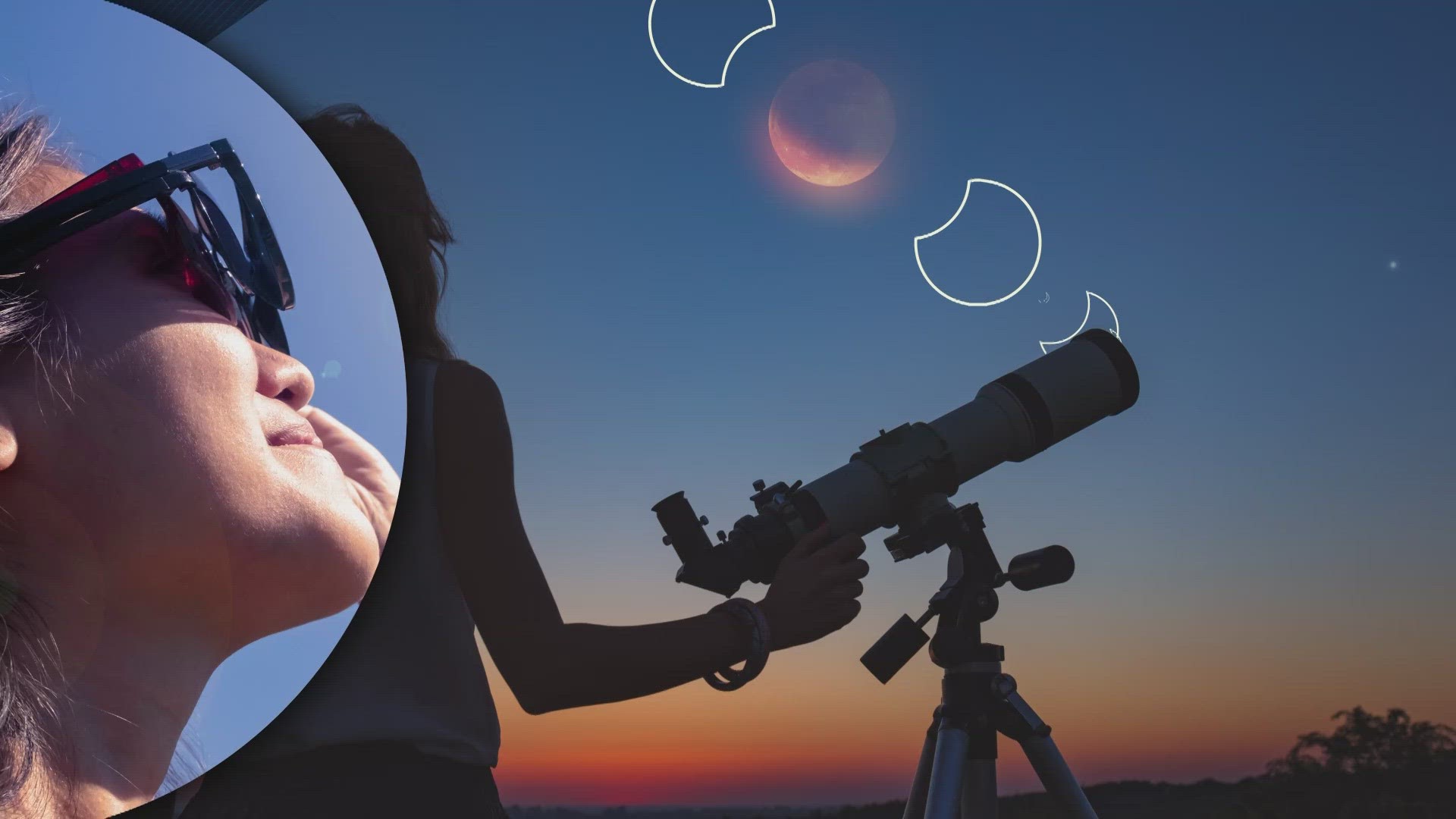WASHINGTON — Millions of eyes will turn up to the sky on Monday, April 8 to view the total solar eclipse set to darken skies over parts of North America.
But those eyes will need to be covered, or their owners risk permanent vision damage.
To safely view a solar eclipse, you need special eclipse glasses. Those extra-dark shades block out almost all light, allowing you to look directly at the sky without damaging your retinas.
Usually when you look at the sun in the sky, the bright light damages the retinas in the back of your eyes. In fact, it can cause permanent damage in a matter of seconds, according to Scientific America.
And you can't just pop on a pair of shades for the eclipse either. NASA reminds viewers that eclipse glasses are thousands of times darker than regular sunglasses. No matter how dark your sunglasses are, they aren't dark enough.
The eclipse glasses are similar to masks used by welders, who must look directly at the bright flash of a welding torch as it superheats metal.
Technically, you don't need any eye protection during the height of the eclipse, when day turns to night and the sun is completely covered by the moon. In those minutes of complete darkness, the sun's corona won't be as bright, only appearing as streams of white light around the moon.
But because the eclipse is only expected to last for around four and a half minutes at most, it's a narrow window to forego protection. When the eclipse is waning and waxing — that is, when the moon is moving into position in front of the sun before and speeding away after the eclipse — the sun is as bright as a normal day, meaning it's not safe to look directly at.
Even cameras will need special filters. Even if a small portion of the sun is exposed, it could be dangerous to the photosensitive electronics in a camera. A camera's imaging sensor is integral to taking any photos, and exposure to the kind of light put off by an eclipse could essentially burn it out the same way it could damage an eye.
But electronic care aside, a solar filter for your camera will help you get the correct exposure for any eclipse photography you're planning. The contrast between the bright solar ring and the dark lunar shadow in front of it makes it difficult to adjust a camera's settings to capture a true-to-life image of the astronomical phenomenon. A filter can help balance the brightness, letting you take better shots.
Watchers should avoid looking through a camera, telescope or a pair of binoculars that haven't been treated with a filter even while wearing eclipse glasses. The sun's rays can pass through lenses used by those devices and melt the filters that the glasses are using to protect your eyes.
Here are some helpful tips for watching the eclipse:
DO'S:
1. DO seek expert advice before using a solar filter with a camera, telescope or binoculars.
2. DO use a filter on your camera to take pictures.
3. DO wear certified solar viewing glasses when viewing the eclipse.
DON'TS:
1. DO NOT use eclipse glasses or handheld viewers with cameras, binoculars, or telescopes.
2. DO NOT point a camera at the sun unless the lens is fitted with a certified solar filter.
3. DO NOT look through a camera when it is pointed at the sun.
4. DO NOT use your eclipse glasses before the eclipse, because any scratch or break could expose your eyes to harmful solar rays.

